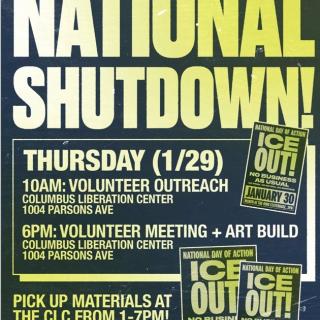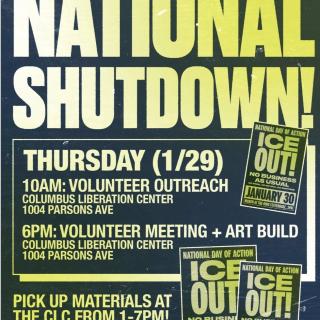I delayed writing this article until today, June 24th. The deadline lies just two days away. You see, the ground keeps shifting.
Donald Trump was elected President last year in part because he appeared to support states’ rights – let ‘em decide for themselves. Some reformers may have interpreted his Republican brand of libertarianism as something more than just a slick salesman. Some may even have voted for him because they thought he would legalize. The noise coming out of the White House differs widely from that heard on the campaign trail. And it changes daily.
As one of his earliest cabinet picks, Trump nominated his former campaign minion, then Senator Jefferson Beauregard Sessions III, to become U.S. Attorney General. Dark clouds began to loom.
At his confirmation hearing, Sessions denied contact with Russians officials during the campaign, but apparently did just that. To some, it’s called perjury. Although many thought his nomination would death spiral, typical of one-party rule, the Senate split along party lines to approve him. However, he subsequently recused himself from the Russia investigation, leaving him more time to pursue his favorite boogeyman, marijuana.
Sessions has openly signaled his intent to reignite the crusade against cannabis. During an April 2016 hearing, he warned, “we need grown-ups in charge in Washington to say marijuana is not the kind of thing that ought to be legalized … that it’s in fact a very real danger.” He went on to famously declare that the government must disseminate “knowledge that this drug is dangerous…and to send that message with clarity that good people don’t smoke marijuana.”
Not surprisingly, the uber conservative, yet highly influential Heritage Foundation agrees. In February, it published an article entitled, “How Trump’s DOJ Can Start Enforcing Marijuana Law,” offering 11 tactical tips that included “oppose efforts to expand banking services to the marijuana industry” and “prosecute those dealing marijuana” under RICO (organized crime statute). Scary stuff.
With that in mind, Trump in April signed one of his infamous executive orders to form a Task Force on Crime Reduction and Public Safety. Its marching orders: “undertake a review of existing policies” regarding the enforcement of marijuana laws with the report due in July. In May, Sessions sent Congress a letter requesting assistance with his war on these laws – in other words, tank the long standing Rohrabacher-Farr amendment that defunds federal interference in states where medicinal cannabis is legal. Thanks to Sessions, banks are force closing accounts and a RICO lawsuit has been filed against a Colorado grow site.
So how did we get here? Even the name Jefferson Beauregard Sessions III evokes images of another time. Your mind’s eye can almost see him sitting on the veranda at sunset gazing over cotton fields. Jim Crow lives and breathes in his world. He’ll do anything the planter orders. Translation in the new age means anything to satisfy campaign contributors.
Sly non-transparent 527 Super PACs are the campaign contribution tools that corporations, conglomerates and the very wealthy use to fund those who do their bidding. For Trump and by extension Sessions, payers include the pharmaceutical industry, private prison companies and individuals like Sheldon Adelson. What do they have in common? A distaste for marijuana.
Pharmaceutical manufacturers contributed more than $17 million to political campaigns in 2016. Pfizer and Amgen respectively gave $1 million and $500,000 to the President’s inauguration. Patients are replacing deadly drugs like opiates with medicinal cannabis.
CoreCivic (formerly Corrections Corporation of America), one of the top dogs in the private prison industry, gave the Trump campaign approximately $250,000. Quoting from their annual report, “…any change with respect to drugs and controlled substances…could affect the number of persons arrested, convicted and sentenced, thereby potentially reducing demand for correctional facilities to house them.” Translation: the incarcerated are a commodity; cannabis cuts profit.
As for Adelson, he and his wife each chipped in $10 million for Trump’s election, while giving over $8 million to oppose recent marijuana ballot initiatives in Arizona, Florida, Nevada and Massachusetts.
So dark cloudy days may loom ahead. Sessions will excoriate America’s fledgling billion-dollar marijuana industry. Or won’t he?
Dozens of investigations and lawsuits plague both Trump and Sessions. Regarding Russia, there’s special counsel Robert Mueller, the House and Senate Intelligence Committees and the Senate Judiciary Committee. A grand jury has been empaneled in Alexandria, Virginia. Sessions could also be disbarred if two complaints are successful.
Which is good for marijuana. The more these antebellum officials are wrapped in their own misdeeds, the more they become discredited, their policies toothless and the safer we are. The uncertainty over whether Jeff Sessions will or won’t is a beneficial thing, for it breeds our freedom.



